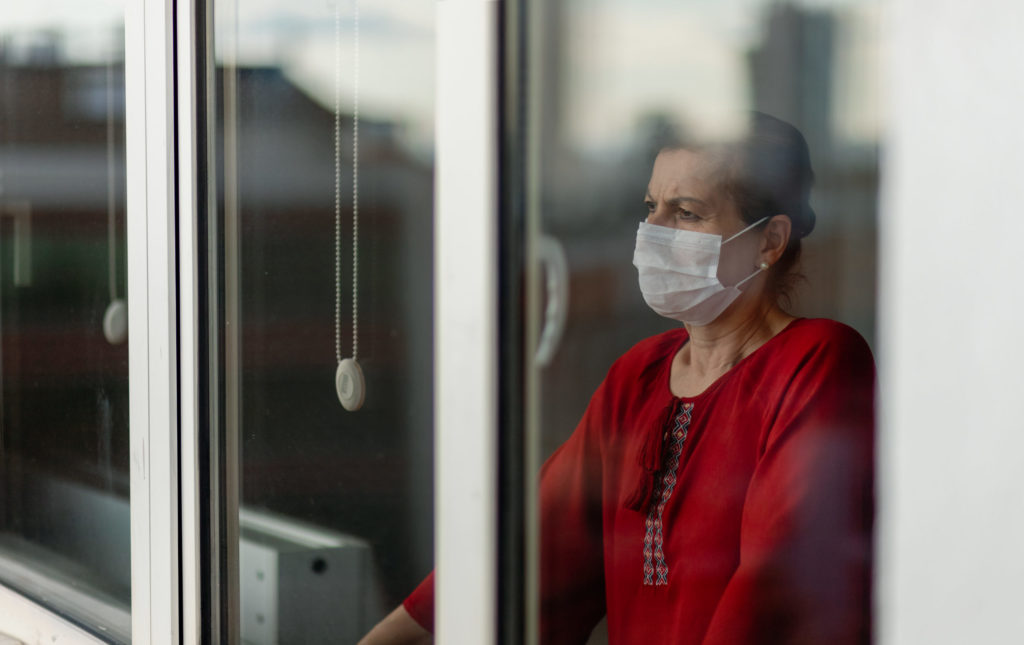The global COVID-19 pandemic is surely one of the most pressing health crises of our lifetime. While healthy diet and lifestyle choices have been shown to prevent nearly 80% of chronic disease, the novel coronavirus is unlike any illness we’ve encountered thus far, leaving many experts to wonder if, and how, diet might play a role.

Is there a Connection Between Diet and Covid-19?
At this point, the research on COVID-19 is still young, and there have been very few, if any, studies on diet’s relationship to COVID-19. However, what we do know is that people with health problems such as diabetes, heart disease, and obesity tend to be at higher risk of having more serious complications if and when they do get COVID-19. Preventing these health conditions is a sensible step in reducing one’s risk for COVID-19 complications, in addition to reducing COVID-19 risk through the proven methods of mask wearing and vigilant social distancing.
Decades of research show that the Mediterranean diet is consistently associated with anti-inflammatory and immunomodulatory benefits, and that enjoying a Mediterranean Diet can reduce the risk of diabetes and heart disease. The Mediterranean Diet has also been linked with a healthier gut microbiome, better lung function in older adults, better brain health in adults at risk of Alzheimer’s, and a lower risk of mobility problems in aging, among countless other benefits.
Mediterranean Diet May Help Protect against Covid Complications
While there is not yet research on how the Mediterranean diet impacts the risk of COVID-19, there has never been a better time to start prioritizing health. In fact, a recent study suggests that “thanks to its anti-inflammatory and immunomodulatory properties, Mediterranean diet provides a nutritional regimen potentially able to address the common soil of pathogenic factors linking diabetes to COVID-19.”
In the face of this unprecedented virus, some Mediterranean communities have found themselves gravitating back to their traditional Mediterranean diet. In a Spanish study published in June of 2020, researchers found that when people were forced to eat more home-cooked meals during the pandemic, the Mediterranean diet score of these participants (a measure of how closely people follow the Mediterranean diet) significantly increased. The people who improved their diet reported eating more olive oil, vegetables, fruits, or legumes, and less fried foods, snacks, fast foods, red meat, pastries, or sweetened drinks. The study authors concluded that, “this improvement, if sustained in the long-term, could have a positive impact on the prevention of chronic diseases and COVID-19-related complications.”
According to a December 2020 white paper from Partnership for a Healthier America, “heightened interest in immune-support foods and beverages will not recede even after a vaccine becomes available.” While mask wearing, social distancing, and FDA-approved vaccines are thus far the only proven strategies to reduce the risk of contracting COVID-19, interest in health promoting diets like the Mediterranean diet is here to stay.
Additionally, because the Mediterranean diet is linked with better mental health, some experts suspect that enjoying a flavorful, nutritious Mediterranean diet may be a helpful way for people to cope with the stresses of this isolating time. Luckily, it is easier than ever to experience the Mediterranean diet from the comfort and safety of your own home. Whether you select the Mediterranean-inspired brain healthy meals from Senior Living Residences, tune into Oldways’ virtual Heritage Diet Cooking Classes, or take a Mediterranean staycation with a beloved Mediterranean cookbook, we invite you to be transported and get a taste of the Mediterranean Diet yourself.


 Oldways
Oldways